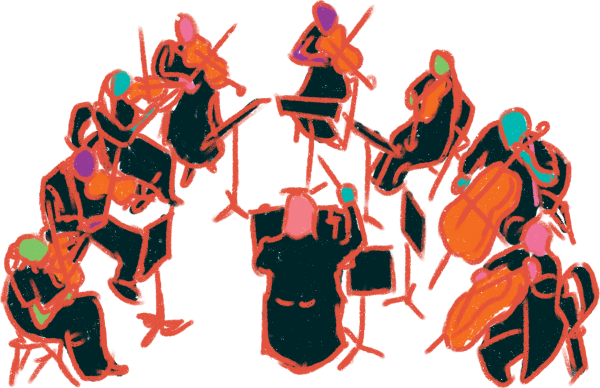Lights, Camera, Austin Film Festival
December 17, 2021
From Oct. 21 to Oct. 28, LASA’s Advanced Audio Visual Production class (AVP) had the opportunity to attend the Austin Film Festival. Students were able to interact with professionals and learn more about film creation and production. AVP is one of the multiple film electives offered at LASA, along with electives such as The Art of Cinema and Hitchcock. Unlike LASA’s other film electives, AVP is focused on learning how film production works, as well as actually practicing and creating their own films.
Film is a unique experience for students, and a unique art in general, according to Marcelo Teson, founder and director of Austin Youth Cinema Collective. The Austin Youth Cinema Collective is a program for teens to learn and practice the art of filmmaking and develop their creativity.
“Film is unlike every other art out there,” Teson said. “It combines so many skills—artistic expression, writing, creativity, logistics, scheduling, budgeting, people skills, acting and improv, creative problem solving, tech, time management—it just encompasses all the different things you need to know to be a successful artist and person. Even if you don’t go into the film industry, making movies is a great way to level up on a lot of the life skills and adulting skills that teens need to transition to college and beyond. It also pushes you to express yourself creatively to your limit. It just takes so much work and thinking and planning.”
AVP provides an introduction to film, and some students continue through the different levels. Junior Kyra Kleiman is in one of the upper levels of AVP, where students build upon knowledge from previous levels of the class and participate in more film-related opportunities.
“I think that film’s really cool, it’s very different from just watching movies,” Kleiman said. “I think that taking AVP has made me realize that. Now that I’m in AVP, I’m considering having a job in the film industry a lot more than I ever did before.”
With different levels of the class, students have a chance to start with AVP now and continue to build on what they’re learning. The class is an opportunity to start participating in film.
“I think that the class is a really great way to get into film,” Kleiman said. “A lot of people just take it because it’s a tech credit, but I remember when I first took it I really started to think about watching movies differently, and I noticed a lot more things about the movies.”
Attending the festival was an opportunity for students to develop their interests in film and get more real world experiences, according to both students who attended and the festival’s directors. Austin Film Festival’s Young Filmmakers Program director Kelsey Walker believes that the festival is an important opportunity for students.
“Students who attend the Austin Film Festival have the opportunity to learn about the art and business of screenwriting from industry professionals, as well as attend a plethora of screenings,” Walker said. “The festival creative team curates student-specific programming aimed at deepening students’ understanding of the entertainment industry and illuminating paths to creative careers. The festival is a great way for students to get inspired and meet other creatives.”
These goals of the festival’s team were met, according to students who attended. Kleiman believed attending the festival was inspiring and insightful.
“It was really cool because it was a lot of smaller filmmakers and screenwriters, so you kind of got to see, ‘If I tried to get a job in the film industry what that might look like?’” Kleiman said. “There was one session where we were all at a table with a filmmaker, and they were giving us advice and we could ask them whatever. It was really cool.”
Film production is accessible to almost everyone, according to Teson. Even for students not taking AVP, there are still a multitude of opportunities. Teson says outside of programs and classes and professional equipment, even just filming and practicing on your phone is valuable.
“Filmmaking is going out there and making films, and sometimes they suck, and sometimes they’re great, and the more you do it the better you get,” Teson said. “While everyone else is talking about their projects that they’re never going to actually make, you’ve made a dozen different movies, and learned skills, and built relationships, and built up your stamina and effort.”
According to Teson, filmmaking takes time and experience, and more practice in creating films is the biggest thing that improves skill and the films produced. Even for students not in AVP, filmmaking is an exciting opportunity for everyone. There are ways for teenagers to get involved even without attending festivals or being in classes.
“The one piece of advice I would give to anyone who wants to get more involved in filmmaking is to make films,” Teson said. “That’s it. Get your phone, get a friend, and go shoot something somewhere. Then, edit it on your phone or on a computer and put it up on YouTube. Show it at your school. Then turn around and make the next one. Make a film a week for six months and you will get so good at it. You’ll get better and better and better with each one.”








